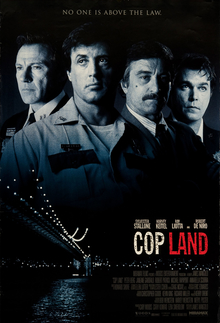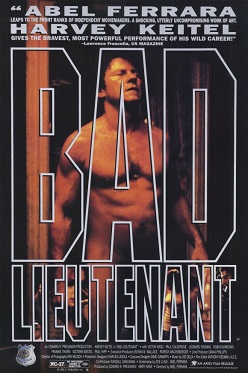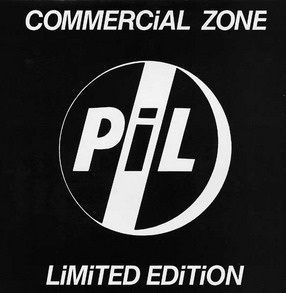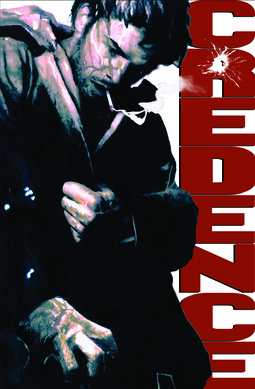Plot
Corrupt NYPD narcotics detectives Fred O'Connor and Bob Carvo have spent their illegal earnings on a Park Avenue apartment, viewing it as a sort of long-term investment. However, friction forms between them, as Carvo feels guilty about their scams and wants to abandon their association, asking O'Connor to pay him his share of the apartment so he can sell it, despite O'Connor's reluctance. Carvo's wife Lenore, a journalist critical of the police and a former fling of O'Connor's, begins to suspect her ex-partner's corruption, but cannot prove it.
O'Connor begins to notice a young man who follows him to and from his secret apartment. After several confrontations on the street, the young man confronts O'Connor inside the apartment, claiming to be the perpetrator of various murders against members of the Narcotics Division, dubbed by the media as the "Copkiller". O'Connor dismisses his assertions due to his small stature and apparent physical weakness. The seemingly disturbed man gives his name as Fred Mason, but O'Connor cannot match the name to any on-record description. Mason threatens to go to the authorities about O'Connor's apartment, thereby exposing his corruption. An equally culpable Carvo insists on letting Mason go, and O'Connor seemingly agrees, paying Carvo his share of the apartment.
In fact, O'Connor keeps Mason captive in his apartment bathroom, binding him and reinforcing the door with a deadbolt. Hoping to intimidate Mason into keeping silent, he tries to garner him into revealing details about his personal life, but a seemingly insolent Mason refuses to cooperate. Mason claims that his wealthy grandmother is looking for him, and his discovery and O'Connor's exposure is inevitable. Based on news reports, O'Connor determines that Mason's real name is Leo Smith, and tracks down his grandmother Margaret on Staten Island. Margaret, a wealthy heiress, says that Leo came under her care after his parents' death, but felt guilty about the wealth he was now entitled to, and developed a self-loathing complex that led him to compulsively confess to heinous crimes he had no involvement in, seeking retribution over his self-inflicted guilt. O'Connor uncovers a secret tape recording by Leo that states his intention to confront O'Connor, thus revealing his location.
O'Connor returns to the apartment and destroys the tape but is confronted by Carvo who has become wise to his scheme. Holding him at gunpoint, Carvo demands he release Leo, but O'Connor responds by striking him and knocking his head on a toilet seat. Telling Leo that he is still alive, he unties him and orders him to help transport his unconscious body to Central Park. Reiterating Leo's earlier claim to be the Copkiller, O'Connor orders him at gunpoint to slit Carvo's throat and kill him, making his death look like another one of the Copkiller's victims. Leo insists that he has never killed anyone, but eventually relents, only for O'Connor to pull the trigger. The gun misfires, and Leo takes the opportunity to escape on foot. O'Connor realizes that his partner's gun was unloaded.
O'Connor goes to work the next day wrought with guilt and paranoia, as investigators are baffled by the unusual circumstances of Carvo's death. Upon returning to the apartment, he is confronted by Leo. As Leo fled the scene of the murder, he is now suspected as either a witness or accomplice. O'Connor reluctantly allows Leo to stay in his apartment indefinitely. O'Connor's mental state further deteriorates as he descends into alcoholism, seeking comfort in the presence of Lenore, who still has feelings for him after her husband's death. Leo, meanwhile, sneaks out of the apartment to purchase a serrated knife identical to the one used by the Copkiller, and hides it in O'Connor's kitchen.
Leo chastises O'Connor for seeing Lenore, claiming that his feelings of guilt make a confession to her unavoidable. The two plot to murder her, Leo goading him by threatening to go the police. While O'Connor goes to Lenore's house, Leo dresses as a picture of his father and retrieves a hidden gym bag from a subway station locker. At her apartment, O'Connor cannot go through with Lenore's murder. He gives her Carvo's gun and confesses to the secret arrangement between the two, while falsely claiming that the apartment is far away from Central Park.
Upon returning to the apartment, a disheveled O'Connor finds the phone line cut and Leo bound and gagged in the bathtub. Untying him and trying to find the intruder in the house, he is instead confronted by a grieved Lenore who berates him for lying to her and accuses him of killing Carvo. Leo emerges and claims that O'Connor is the Copkiller and held him hostage, and planned to kill both him and Lenore. She goes outside to call the police, while Leo reveals himself as the true Copkiller, having manipulated the corrupt O'Connor from the very beginning to frame him. He gives O'Connor the knife and tells him to finish it, before dumping his killing paraphernalia from his gym bag into the closet. With nowhere to run, O'Connor slits his own throat just as a horrified Lenore and police backup burst in. He collapses to the floor dead, and a poker-faced Leo stares out at the skyline.
Release, distribution and alternative titles
The premiere in Italy was on March 15, 1983. [1] [8] New Line Cinema acquired the U.S. rights and released the film under the title Corrupt in New York City in January 1984. and the film slowly worked its way through art theatres for months after. [9] Thorn EMI Screen Entertainment released the film on home video in America later in 1984 as part of a package they acquired from New Line. New Line also licensed the film for TV syndication to The Entertainment Network (a.k.a. TEN) along with other titles they then had rights to, including The Texas Chain Saw Massacre and The Cars That Ate Paris ; the film was retitled Copkiller for television broadcast.
For undetermined reasons, after New Line's initial rights expired, the film became regarded as public domain [6] in America. Scores of bad-quality copies have been floating around the market, usually either sourced from the Thorn EMI videotape, or a 16mm print of the edited-for-television TEN version. [10] It has not only been offered under its UK titles The Order of Death or Order of Death (mostly in the United Kingdom), its US title Corrupt, or the alternate Cop Killer or Cop Killers titles, but also as Bad Cop Chronicles #2: Corrupt (from the VHS sleeve, part of the video series Bad Cop Chronicles) and Corrupt Lieutenant. [5] [11] The latter was devised after 1992 to capitalize on Abel Ferrara's Bad Lieutenant , a critically acclaimed film also featuring Harvey Keitel. [10] On July 24, 2017, Code Red DVD released the film on Blu Ray in America, sourced from the original New Line Cinema elements, obtained directly from the Warner Bros. vault. [12]




















